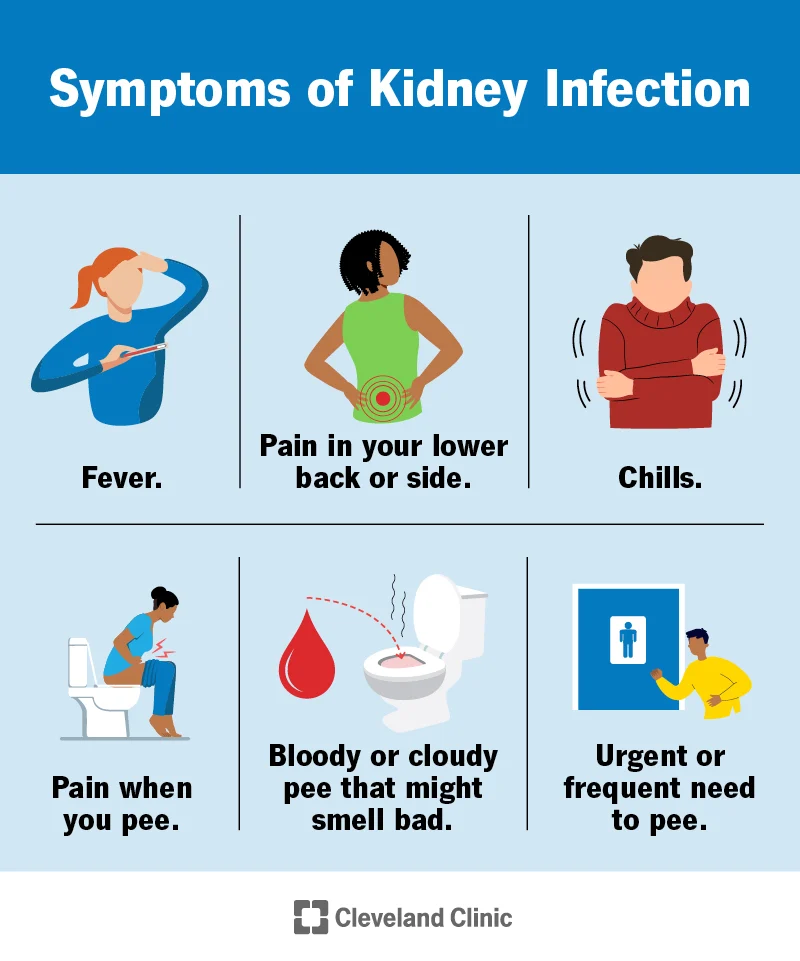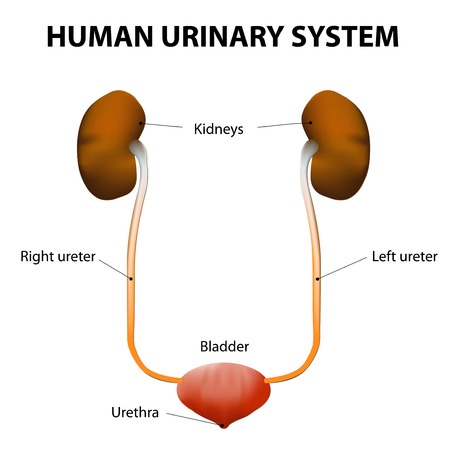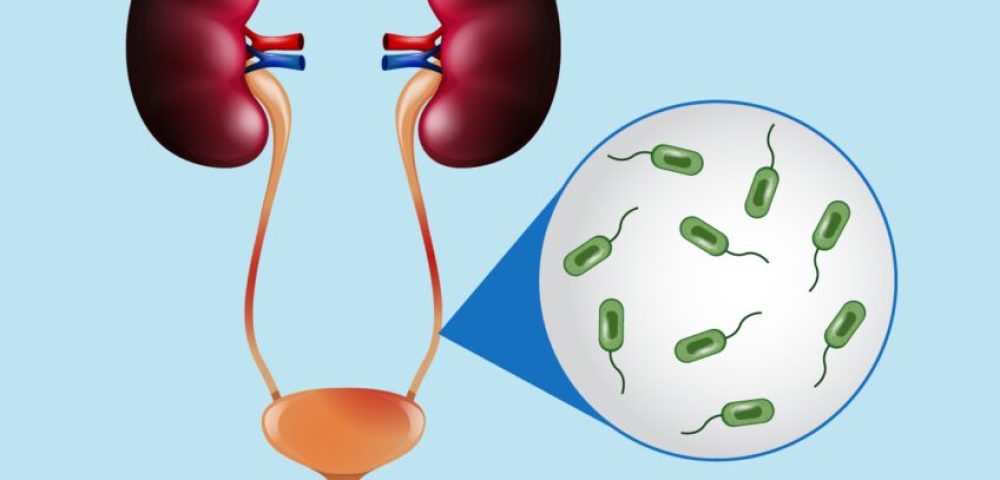UTI complications can be a real pain – literally. They occur when the infection spreads beyond the bladder and up to the kidneys, leading to infections like pyelonephritis and sepsis. Symptoms to watch out for are fever, chills, back pain and vomiting. These need to be monitored closely to prevent any nasty health consequences.
If left untreated, that can lead to chronic kidney disease or even death. So, it’s important to get treatment quickly and take preventative measures such as avoiding delaying urination and drinking plenty of water.
Page Contents
Various UTI Complications to Spot
To spot various UTI complications, such as kidney infection, sepsis, pyelonephritis, and urinary tract obstruction, while treating UTI is essential for your overall health. In order to tackle these complications with ease, it is recommended to understand the symptoms and warning signs associated with each sub-section.
Kidney Infection

Kidney infection, also known as pyelonephritis, is a severe UTI. It happens when bacteria moves from the bladder to the kidneys. Symptoms may include fever, chills, nausea, vomiting and back pain. Left untreated, it can cause kidney damage or sepsis.
Apart from the usual UTI signs, such as painful urination and frequent peeing, additional symptoms of kidney infection may be fatigue, confusion, and shortness of breath. These are signs of a more serious UTI and require medical attention.
If you experience any of these signs, seek medical help right away. Treatment often consists of antibiotics and pain relievers. Drinking lots of water helps flush out bacteria from the urinary tract.
Sepsis
A severe urinary tract infection can cause a bloodstream infection, leading to a life-threatening condition known as blood poisoning. Bacteria from the UTI enters the bloodstream, triggering an inflammatory response throughout the body, resulting in sepsis.
Symptoms of sepsis are fever, rapid heartbeat, rapid breathing, confusion, and reduced urine output. It’s a critical condition that needs urgent medical care. Without treatment, it can cause organ failure and death.
Treatment often involves antibiotics and supportive care to handle symptoms such as low blood pressure and difficulty breathing.
If you suspect you have a UTI and experience symptoms like pain or burning while urinating, frequent urination, or cloudy urine, seek medical help right away. Timely treatment of UTI can prevent complications like sepsis. Don’t wait until it’s too late!
Pyelonephritis
Diagnosing pyelonephritis involves physical exams, blood and urine tests. Antibiotics to kill bacteria, alongside pain relievers, are used to treat it. Severe cases may need hospitalization.
UTI recurrence and underlying medical conditions, like diabetes and autoimmune diseases, raise the risk of pyelonephritis.
This 42-year-old female had urinary frequency and cloudy urine. Her urologist diagnosed pyelonephritis and she was given two days of antibiotics via IV, plus supportive care. It emphasizes the importance of getting prompt help for infection symptoms and following treatment plans for the best outcomes.
Urinary Tract Obstruction

A blockage in the urinary tract can be a common problem. This stops the smooth flow of urine in the kidneys, bladder and urethra. This can cause pain during urination, plus lower abdominal pain and needing to pee often.
The cause of this blockage can be many things. Tumors, an enlarged prostate gland, bladder stones, urethral strictures and kidney stones are some examples. If you have sudden, severe pain in your side or back; lose bladder control; find blood in your urine; or vomit, you should seek medical help immediately.
Complications from this include a drop in blood pressure due to septicemia, acute kidney injury due to not enough urine being made, and electrolyte imbalance after the blockage is treated.
*NIDDK (The National Institute for Diabetes and Digestive and Kidney Diseases)* warns that urinary tract obstruction can be deadly if not treated. Don’t let UTIs get you down. Take preventive measures to avoid infection and the embarrassment of having to tell your doctor again.
Preventing Infection Complications
To prevent UTI complications, you need to take a systematic approach with hygiene and lifestyle changes, proper antibiotic treatment and follow-up, and evaluation of underlying medical conditions. In this section, we will explore the sub-sections to offer solutions for prevention.
Hygiene and Lifestyle Changes
To avoid complications, personal care and healthy habits are key. Cleanliness of the genital area should be kept before and after sex and when going to the toilet. Cotton underwear is better than synthetic as it allows moisture to escape. Drinking plenty of fluids and having a healthy diet, plus avoiding holding in pee for too long and going to the loo after sex is recommended.
Birth control containing spermicide and sanitary towels should be used sparingly to reduce the risk of infection. Relaxation activities such as yoga or meditation can help the immune system. Basic hygiene like washing your hands, wiping from front to back after using the bathroom and changing sanitary towels frequently are important habits.
Probiotics can help prevent recurring UTIs by keeping good bacteria in the vaginal flora and hindering bad bacteria’s growth. Antibiotics are also recommended as UTIs can come back if left untreated. According to NHS UK, “50% of women over 65 experience recurrent UTIs”. So, keeping up with hygiene and lifestyle changes is key for UTI prevention.
Proper Antibiotic Treatment and Follow-up

Using the right antibiotics and regular monitoring is essential for preventing UTI complications. It includes finding out the germ, choosing the most effective drug, working out the best doses, and making sure that treatment is done on time. Even if you start to feel better before finishing the course, it’s still important to complete it to avoid antibiotic resistance or a repeat infection.
Antibiotic resistance is a big worry as incorrect treatment can lead to chronic infections, damage of important organs and even death. Narrow-spectrum antibiotics are better than broad-spectrum ones because they don’t harm healthy microbes as much. After treatment, follow-up care is used to see if the bacteria has gone or come back, and to stop changes in vaginal flora which could cause more infections.
Treatment should be decided according to age, sex, medical history, allergies and previous drug use. In pregnant women or those with a weak immune system, different drugs may be needed. For recurrent UTIs, a different approach is needed to reduce the harm from using antibiotics again and again.
To avoid future outbreaks:
- Catheterization should be avoided where possible
- Wipe front-to-back after going to the toilet
- Stay hydrated
- Pee every 4-6 hours
- Remember to practice good hygiene during sex.
Evaluation of Underlying Medical Conditions
Medical conditions that can cause UTIs must be evaluated. This is important to avoid the issues UTIs can cause. Diagnosing and managing issues like diabetes, kidney stones, or spinal cord injuries can help with UTI prevention.
Early identification and treatment of these conditions can lead to better results. Patients should get a complete evaluation that includes their medical history, physical exam, and lab tests.
Urological abnormalities, genetic changes, and tumors that can lead to recurrent infections should be ruled out. Watching for these comorbidities can help reduce UTI-related complications.
In 1928, Alexander Fleming discovered Penicillin, which revolutionized the curing of bacterial infections that were untreatable before. In the 21st century, we have more advanced treatments and technology, which enable us not only to prevent underlying UTI conditions, but also diagnose them easily. Proper diagnosis of causes is necessary for successful prevention of UTI problems.
Leo Green, the embodiment of a wellness guru at Fischer Institute, brings boundless expertise as a health expert and certified personal trainer. With his dynamic approach and unwavering dedication, Leo empowers individuals to embrace a balanced lifestyle, unlocking their full potential for optimal health and vitality.
Also Read:
- Can Hemorrhoids Cause Vulvar Pain? - Understanding…
- Do I Have Kidney Stones or a UTI? How To Tell the Difference
- Does Retinol Cause Cancer? Unveiling the Truth
- Understanding Symptoms And Risks Of Untreated ADHD In Adults
- Are BCAAs Worth It? A Complete Guide To…
- Side Effects of Testosterone Boosters - What They…















